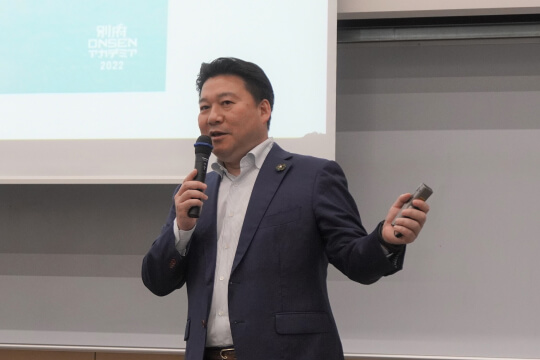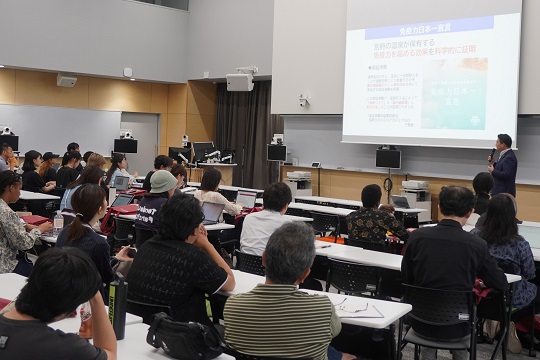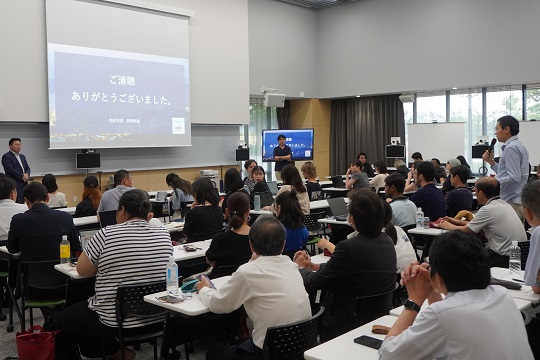Special Lecture by the Mayor of Beppu Held as Beppu City 100th Year Anniversary Crown Event
- Lecture/Symposium
- Affiliated Projects
On Wednesday, July 10, Beppu City Mayor, Yasuhiro Nagano, delivered a lecture as a visiting professor at the College of Sustainability and Tourism, titled “Learning from Bath's World Heritage Site: Legacy and Sustainability for the Next Century.”
During the lecture, Mayor Nagano stated, “The ideal sister-city relationship is one where both parties share knowledge, create added value, and are partners in solving problems.” He introduced the insights and achievements gained from sister city exchanges in administration, culture, and sports. Bath, the only hot spring city in the UK, was designated as a UNESCO World Heritage Site in 2021 as part of "The Great Spa Towns of Europe." Mayor Nagano discussed Bath’s advanced regional revitalization examples and explained Beppu’s strategies for creating a sustainable tourism region, including the "New Onsen Wellness Tourism" initiative. He outlined the plan to strategically promote tourism in the wellness market by offering unique experiences focused on healthcare, beauty, and well-being, leveraging the scientifically proven benefits of hot springs.
The lecture was attended by students and graduate students participating in APU’s Field Study Program, which will be held for the first time in Bath this summer. The event was also open to the general public, with approximately 30 attendees, bringing the total number of participants to around 90. During the latter part of the lecture, a Q&A session and discussion were held, addressing many questions about providing guidance and support for foreign tourists using hot springs, and utilizing Beppu's unique hot springs and regional characteristics for tourism. Mayor Nagano answered each question with care.
Mayor Nagano emphasized that tourism is a means to achieve “the happiness of citizens” rather than an end in itself, and stressed the importance of being mindful of the difference between means and ends, as it can significantly affect methods and outcomes when formulating policies.













